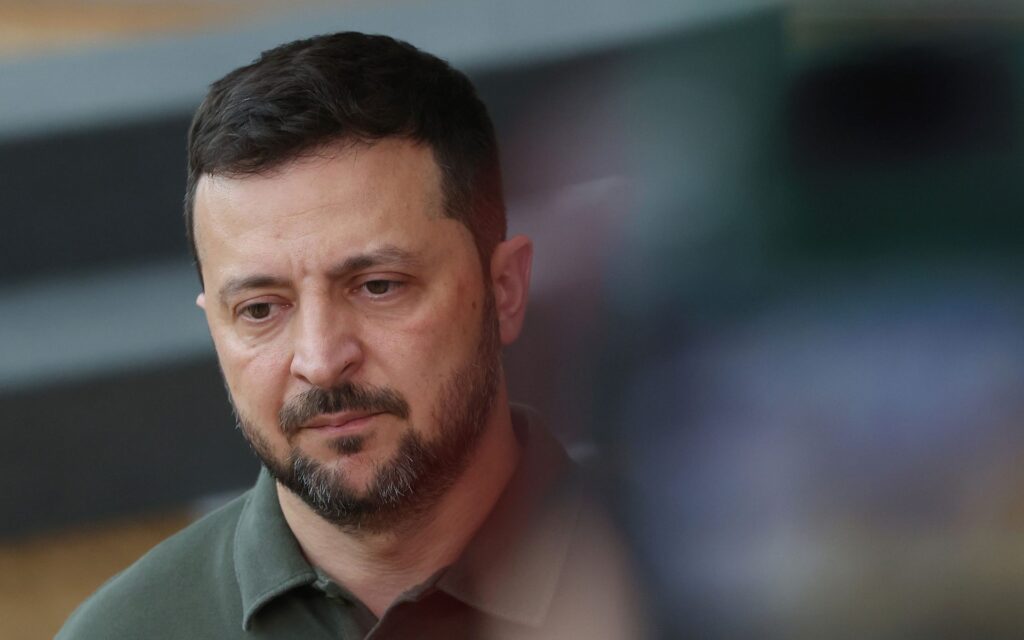
Ukraine’s SBU security forces announced on Monday that they had thwarted a coup attempt supported by Russia, aiming to overthrow President Volodymyr Zelensky and establish a pro-Kremlin government. The coup plotters allegedly intended to use a rally in central Kyiv as a cover to incite riots and seize the Verkhovna Rada, Ukraine’s parliament.
“The perpetrators planned to announce the ‘removal from power’ of the current military-political leadership of Ukraine. They then hoped to seize the building of Ukraine’s Verkhovna Rada and block its work,” stated the SBU. The coup was scheduled for Ukraine’s Constitution Day on June 30. Photos released on Monday showed officers in balaclavas arresting several suspects the previous day, focusing their operations in the Ivano-Frankivsk region of western Ukraine.
Weapons and Plans Seized
The coup plotters, identified as known pro-Russia agitators, had hidden weapons caches, including assault rifles, a sniper rifle, and handguns. Authorities also found cartons of ammunition, laptops, mobile phones, and hand-drawn coup plans during the raids. The SBU noted that the conspirators intended to spread news of the unrest in Kyiv through both domestic and international media to destabilize the socio-political situation in Ukraine, benefiting the Russian Federation.
The SBU revealed that the coup was orchestrated by a “co-founder of a public organization known for its anti-Ukrainian actions since 2015,” without disclosing the individual’s name.
Past Assassination Attempts
While the Kremlin has not commented, Western intelligence services have previously reported foiling numerous assassination attempts against President Zelensky. In May, the SBU arrested two Ukrainian colonels from the military unit responsible for protecting top officials for plotting to kill Zelensky. They planned to kidnap and then execute the president. Sunday’s alleged coup plot, however, appeared to be more extensive, involving grassroots organizations in Kyiv, Dnipro, and other cities.
Communication and Evidence
The coup plotters communicated through various instant messaging services and met in small groups of three when necessary. As evidence, the SBU released a voice recording of a conversation between two coup leaders, one of whom claimed to have the support of “not hundreds, but thousands” of people. The leader mentioned plans to organize as a “Veche,” a medieval Slavic council or assembly, and emphasized the need to gather as many people as possible.
If convicted, the alleged plotters could face up to 10 years in prison. Ukrainian intelligence services have warned this year that the Kremlin has intensified its efforts to destabilize Ukraine. Western governments have also noted increased activity by Kremlin agents in Europe.